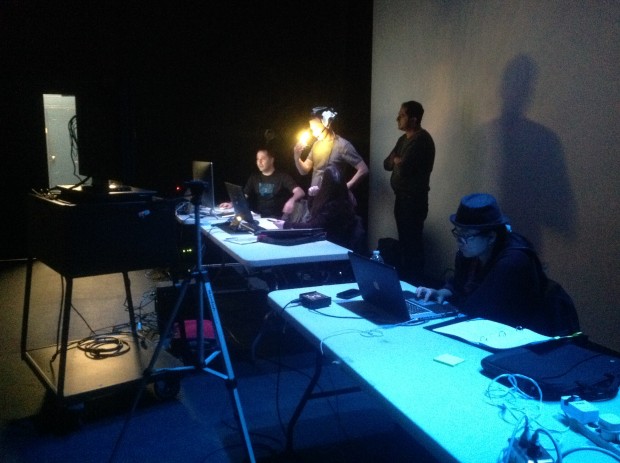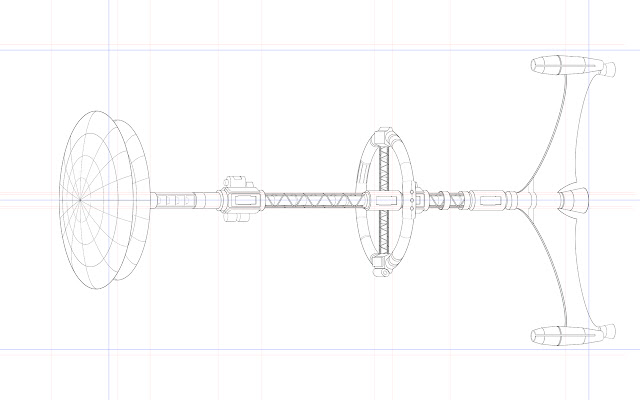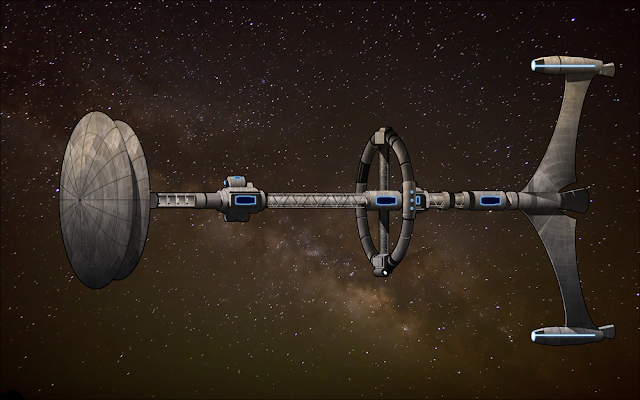Performer + projection mapping + robotics = Box by Bot & Dolly:
And a behind-the-scenes from The Creators Project:
Wednesday, August 27, 2014
Tuesday, August 12, 2014
Meta Martial Arts
Prototype 3D augmented reality Meta Pro SpaceGlasses are my secret weapon against the veillance-gun attack of dastardly Future Cinema Lab mastermind Caitlin Fisher!
Big geeky thanks to Meta Chief Scientist Steve Mann, Meta CTO Raymond Lo, and Steve's whole techno-lair team for a day and night very well misspent.
Big geeky thanks to Meta Chief Scientist Steve Mann, Meta CTO Raymond Lo, and Steve's whole techno-lair team for a day and night very well misspent.
Thursday, July 10, 2014
Apes, Asses and Astronauts
This just in from Ryan Porter of the Toronto Star.
Fun to see Faster than Night and the Theatre@York A Midsummer Night's Dream namechecked alongside a whopping great blockbuster like Dawn of the Planet of the Apes!

Fun to see Faster than Night and the Theatre@York A Midsummer Night's Dream namechecked alongside a whopping great blockbuster like Dawn of the Planet of the Apes!
Vancouver’s Karin Konoval plays orangutan via performance capture in new Planet of the Apes movie

Sunday, June 1, 2014
Playwrights Guild conference
Had a blast at the Playwrights Guild of Canada conference in Montreal yesterday, sharing a panel titled "The Technologized Playwright" with Kevin Cunningham of the amazing NYC-based 3-Legged Dog Theatre + Media Group.
As promised to those couple of folks who missed the beginning, here are the motion-capture theatre videos I screened:
A Midsummer Night's Dream (Theatre@York)
Faster than Night (Harbourfront Centre HATCH)
Huge thanks to Elyne, Robin, Rebecca, Tina, and everyone else who put together such an enjoyably brain-bursting day!
Friday, May 2, 2014
Faster than Night in the Media
We've had some fantastic coverage of Faster than Night this week. The first is an interview with Pascal Langdale and me by Harbourfront Centre's Margaret Evans, in a fast-paced video by Riley Wallace:
Last night, Morgan Hoffman interviewed Pascal Langdale, Melee Hutton and me for the Space channel's flagship current events show InnerSpace, produced by Mark Askwith:
Last night, Morgan Hoffman interviewed Pascal Langdale, Melee Hutton and me for the Space channel's flagship current events show InnerSpace, produced by Mark Askwith:
Ground Control
(Originally published on praxistheatre.com as part of Harbourfront Centre's HATCH 2014.)
Major Tom gets all the airtime, but there's a whole lot more going on backstage in Houston. Meet some of the amazing tech crew on Faster than Night.
Dynamixyz Performer specialist Solène Morvan tests custom iPhone head-motion-tracking developed by SIRT Centre:
Major Tom gets all the airtime, but there's a whole lot more going on backstage in Houston. Meet some of the amazing tech crew on Faster than Night.
Dynamixyz Performer specialist Solène Morvan tests custom iPhone head-motion-tracking developed by SIRT Centre:
Wednesday, April 30, 2014
Organic Thoughts from an Artificial Intelligence
by Melee Hutton
Working on Faster Than Night has been a literal education for me. Not just in the field of social media, where my knowledge hovers somewhere around my own Facebook page and not much more, but also in the world of artificial intelligence.
Playing a quantum A.I is flattering but daunting. Along with it come actor questions I’ve never asked before, but perhaps will ask more often in the future.
Working on Faster Than Night has been a literal education for me. Not just in the field of social media, where my knowledge hovers somewhere around my own Facebook page and not much more, but also in the world of artificial intelligence.
Playing a quantum A.I is flattering but daunting. Along with it come actor questions I’ve never asked before, but perhaps will ask more often in the future.
Monday, April 28, 2014
Supernaturalism
(Originally published on praxistheatre.com as part of Harbourfront Centre's HATCH 2014.)
"Naturalism is a good word for a bad idea. Art is to do with transformation."
– Ariane Mnouchkine
 |
| Motion-capture maestro Andy Serkis in Rise of the Planet of the Apes, The Adventures of Tintin, and The Lord of the Rings. |
In our first and latest posts, we explored how motion capture and real-time animation works. But we haven’t really talked about why one would want to use it in live performance, or what stories it tells best.
These
are key questions. Live animation takes a lot of extra work and costs a
bomb. It makes it hard to describe the show to theatre audiences (other
parts make it hard to explain to game designers and 3D animators). And
it affects the story in a fundamental way. Or at least, it should.
Otherwise you’re just sprinkling digital pixie dust on top of a play and
hoping no one will notice the story would be better told in television
or videogame or non-mocap-theatre form.
Throughout the script development process we’ve asked again and again: why are we telling this story with this technology?
Friday, April 18, 2014
Masks, Morphing and Live Motion Capture
(Originally published on praxistheatre.com as part of Harbourfront Centre's HATCH 2014.)
As far as we're aware, Faster than Night is one of the first handful of theatre productions in the world to use facial performance capture live on stage. But while from one perspective it is cutting-edge technology, it is also just the latest mutation of an artform that has been used in theatre for millennia: the mask.
 |
| Balinese topeng masks (Gunawan Kartapranata) |
As far as we're aware, Faster than Night is one of the first handful of theatre productions in the world to use facial performance capture live on stage. But while from one perspective it is cutting-edge technology, it is also just the latest mutation of an artform that has been used in theatre for millennia: the mask.
Thursday, April 17, 2014
Design Team Work-in-Progress
(Originally published on praxistheatre.com as part of Harbourfront Centre's HATCH 2014.)
A longer post is coming soon with details on the 3D facial model work being done by Centaur Digital and Dynamixyz, but to tide you over, here are a few more elements from our talented creative team.
First up, the design of the starship Envoy by Mike Nesbitt and Caroline Stephenson of Capture Scratch:
Next, "Like Clockwork" by composer and audio designer Will Mountain, via Vapor Music:
A longer post is coming soon with details on the 3D facial model work being done by Centaur Digital and Dynamixyz, but to tide you over, here are a few more elements from our talented creative team.
First up, the design of the starship Envoy by Mike Nesbitt and Caroline Stephenson of Capture Scratch:
Tuesday, April 8, 2014
Performance, Capture and Interactivity

Guest post by Pascal Langdale
(Originally published on praxistheatre.com as part of Harbourfront Centre's HATCH 2014.)In the UK, I’d be called a “jobbing actor”. That means that I work across all sorts of media, picking up a wide variety of acting work that provides a steady income. I have worked in corporates and commercials, stage, film and TV, and interactive games. Going a little further back, I have published poetry, written a radio play, co-produced movement-based theatre, headed a flamenco company, and once danced with Cyd Charisse. In my early thirties I studied nonverbal behavior and re-appraised my acting techniques. When I say I’m a RADA graduate, I sometimes think people expect a more traditional actor – a style or a working process which I can also embrace when necessary.
Every form I've
worked in has certain established rules and conventions, developed over
years (or centuries) to serve the best interests of storytelling within
that medium. Each has its own artifice, relies on a shared experience,
and requires adaptation of the core craft of acting.
So
it was with a jobbing actor’s irreligious approach that I made friends
with the newcomer on the storytelling scene: performance capture. In
this medium, the rules and conventions are still being established,
found wanting, re-established, changed, superseded and hotly debated.
Saturday, April 5, 2014
Interactive Story
(Originally published on praxistheatre.com as part of Harbourfront Centre's HATCH 2014.)
"Interactivity" is one of those words. What does it mean in theatre? What does it mean in storytelling? What does it mean to you? As we develop Faster than Night, which was conceived with the slippery and baffling ambition to involve the audience in the story, I've been thinking a lot about what it means to me.
"Interactivity" is one of those words. What does it mean in theatre? What does it mean in storytelling? What does it mean to you? As we develop Faster than Night, which was conceived with the slippery and baffling ambition to involve the audience in the story, I've been thinking a lot about what it means to me.
When I was sixteen, there was a comic convention in downtown Toronto. This was way back before comics were cool, a good decade before the invention of the web let geeks find each other en masse, and longer before the San Diego Comic-Con went media-tastic and started attracting 130,000 paying attendees. We're talking the basement of the Hilton, a bunch of folding tables with dealers selling back-issues from boxes, and a special guest or three.
I was a huge fan of Marvel Comics's Uncanny X-Men, which was ahead of the curve in introducing multiple, powerful female superheroes.
(One of those heroines, the teenage Kitty Pryde, was the original protagonist of one of my favorite X-Men storylines, "Days of Future Past". Yet when its blockbuster movie adaptation is released next month, the very male and very box office-friendly character Wolverine will be taking her role in the narrative. That's a different blog post...)
I was a huge fan of Marvel Comics's Uncanny X-Men, which was ahead of the curve in introducing multiple, powerful female superheroes.
(One of those heroines, the teenage Kitty Pryde, was the original protagonist of one of my favorite X-Men storylines, "Days of Future Past". Yet when its blockbuster movie adaptation is released next month, the very male and very box office-friendly character Wolverine will be taking her role in the narrative. That's a different blog post...)
Wednesday, April 2, 2014
Saturday, March 29, 2014
Faster than Night
We've got a new site up for Faster than Night, linking to all the show's many online presences:
Check it out for blog posts, Twitter, Facebook and of course, that all-important box office link!
Wednesday, March 26, 2014
Mind, Muscle and the Music of the Spheres
(Originally published on praxistheatre.com as part of Harbourfront Centre's HATCH 2014.)
When you're writing a science fiction story about wormholes and time travel, sooner or sooner you're going to bump into Stephen Hawking. The world-famous physicist and Brief History of Time author even has some theoretical black hole quantum-effect radiation named after him, for heaven's sake. He's just. that. good.
But there's another resonance with Faster than Night that we didn't anticipate. Hawking, like us, uses facial-capture technology.
 |
When you're writing a science fiction story about wormholes and time travel, sooner or sooner you're going to bump into Stephen Hawking. The world-famous physicist and Brief History of Time author even has some theoretical black hole quantum-effect radiation named after him, for heaven's sake. He's just. that. good.
But there's another resonance with Faster than Night that we didn't anticipate. Hawking, like us, uses facial-capture technology.
Friday, March 21, 2014
#Fasterfood
(Originally published on praxistheatre.com as part of Harbourfront Centre's HATCH 2014.)
Earlier this week, ISMEE, the artificial intelligence on board the starship Envoy, issued an invitation and a challenge:
Want to travel faster than light? Apply to #Fastronauts today: include your name, hometown, and favourite freeze-dried/squeeze-tube food.
— ISMEE the A.I. (@ISMEEtheAI) March 19, 2014
And you know there's nothing people like better than tweeting their #foodporn:Wednesday, March 5, 2014
Facial Capture
by Heather Gilroy
(Originally published on praxistheatre.com as part of Harbourfront Centre's HATCH 2014.)
It looks like he’s wearing a bike lock on his head.
A protruding horizontal rectangle shadows the actor’s face—it’s attached to him by a black headband. The tiny camera is suspended just inches in front of his nose. A cable comes out of the contraption leading somewhere behind the curtains...
Centre stage, a huge animated head is projected, a donkey whose lips are moving in time with the man’s, whose head turns when his does—a big 3D cartoon puppet. It's March 2013, Shakespeare’s A Midsummer Night's Dream is getting a high-tech treatment over at York University, and poor Bottom has been turned into an ass for real this time.
The Dream's director Alison Humphrey first met Pascal Langdale during this production, introduced by creative producer Vanessa Shaver of Invisible Light.
(Originally published on praxistheatre.com as part of Harbourfront Centre's HATCH 2014.)
It looks like he’s wearing a bike lock on his head.
A protruding horizontal rectangle shadows the actor’s face—it’s attached to him by a black headband. The tiny camera is suspended just inches in front of his nose. A cable comes out of the contraption leading somewhere behind the curtains...
Centre stage, a huge animated head is projected, a donkey whose lips are moving in time with the man’s, whose head turns when his does—a big 3D cartoon puppet. It's March 2013, Shakespeare’s A Midsummer Night's Dream is getting a high-tech treatment over at York University, and poor Bottom has been turned into an ass for real this time.
Adam Bergquist as Bottom in the 2013 Theatre@York production of A Midsummer Night's Dream
(3D model by Aaron McLean, animation by SIRT Centre)
The Dream's director Alison Humphrey first met Pascal Langdale during this production, introduced by creative producer Vanessa Shaver of Invisible Light.
Sunday, February 16, 2014
A Motion-Capture Midsummer Night's Dream
A Midsummer Night's Dream was my theatre directing MFA thesis production at York University.
Staged in March 2013, it used facial motion capture to live-animate a 3D computer-generated donkey head for Bottom, among other way-cool tech-driven fairy magic.
I wrote the blog Action Refraction during the process from 2012-2013, using it as a place to collect and share tech and creative inspirations and other musings with the company.
That utterly fabulous and nerve-wracking experience taught me a huge amount about using bleeding-edge technology in live theatre, but clearly not enough not to do it again...
Staged in March 2013, it used facial motion capture to live-animate a 3D computer-generated donkey head for Bottom, among other way-cool tech-driven fairy magic.
I wrote the blog Action Refraction during the process from 2012-2013, using it as a place to collect and share tech and creative inspirations and other musings with the company.
That utterly fabulous and nerve-wracking experience taught me a huge amount about using bleeding-edge technology in live theatre, but clearly not enough not to do it again...
Click here for more production photos.
Subscribe to:
Posts (Atom)







